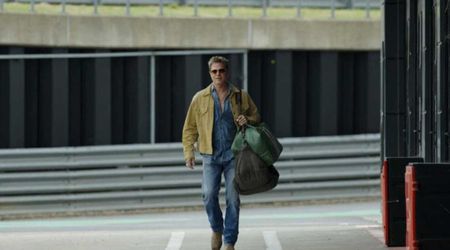Purdah is a beautiful narration of women's fight for identity and ambition in modern India

Every dream deserves a chance to be fulfilled, regardless of the dreamer’s religion, gender, social or financial status. It is often said that everything in life comes at a cost and dreams are no exception.
Mumbai's Mirza family paid a price to help their daughter Kaikasha continue playing cricket. Kaikasha herself went through ordeals as she stood against and broke many long-standing rules in order to pursue what she loved most – cricket.
Two common stereotypes in a South Asian country like India take center stage each time the subject of women playing a sport is talked about. One, women don’t possess the kind of strength men do to endure and play a sport. Two, women are only meant to stay at home, look after the family and get married when she comes off age. It gets even harder when she is a Muslim. The rules and restrictions imposed by the religion can put the fundamental rights in our constitution to shame. However, there are very few people in the world who dare to go against the odds and take the road less traveled to pursue their dreams. Kaikasha is one among them.
The 71-minute documentary begins with showing a 20-year-old Kaikasha wanting to play for a cricket league in India's financial capital Mumbai.
When she tells her parents about her ambition, initially they oppose the idea but relent reluctantly. Having won the support of her parents, she is indeed the luckiest of all three daughters of the family. Both of Kaikasha's sisters dared to dream like her, but never got the opportunity to fulfill them.
However, luck does run its course for Kaikasha, whom we get to meet after a three-year time jump. Having failed to make it to the senior women's team and burdened by the troubles that have befallen her family, Kaikasha is not in the best of shapes.
She is worried for her sisters, each of whom is battling their own demons. In the face of all this, Kaikasha represents the proud, free modern woman, remains unmarried - in a world were women are forcefully married off like her own sister Heena - as she hasn’t found a man who is okay with her playing cricket after marriage.
Even her sister Saba - who is an earning member of the family, and Heena - who was diagnosed as HIV positive along with her newborn child - represent the new wave of feminists, who know they deserve to be happy and will fight till the bitter end in the pursuit of that.
However, the story ends with Saba and Kaikasha’s earnings help ease the money crunch the family was facing. Heena and her child are shown to be in good health and Kaikasha coaching kids in cricket and also playing the sport whenever she finds the time.
LA-based Jeremy Guy profiles these women while showing a specific culture around them where cricket is omnipresent. Though the documentary majorly focuses on women being a part of cricket culture, it also touches upon the limitations of work culture, especially when Saba is turned down in the interview to become an air hostess simply because she wears the hijab.
The documentary also emphasizes that hijab or the Burqa is in itself a culture, against which Kaikasha stood up against in her pursuit of her cricket dreams.
Ideally, the documentary would’ve been a step closer to reality if they showed Kaikasha battling against the harsh judgments of those within her community through verbal clashes between people of the community and the Mirza family.
Moreover, Kaiksha’s struggle would’ve been further glorified if they portrayed a few scenes of fights or arguments between her and her father.
One particular scene in the documentary that stood out was when they showed a girl blowing water bubbles and Heena’s son trying to pop them. This to me was a metaphor for Saba and Heena’s dreams which were left unfulfilled and in a way ‘popped’ under the due course of time and ordeals of life.
However, Jeremy interprets this scene differently. He says, “The bubbles scene showcased a unique combination of beauty, fragility, and still some optimism. While some of their dreams have been shattered, the Mirza family shows a remarkable and beautiful perseverance in the face of it all, and I think Saba, in particular, grows tremendously in reaction to all of the adversity. The optimism seen on the faces of the children watching the bubbles reminded me of the family's undeterred spirit and gave me hope for the family's future.”
Ultimately, 'Purdah' serve as a reminder of what women are capable of doing when they put their mind to it, even when the society and family refuse to support them; they find the strength within themselves to move mountains and make a difference. It is also an ode to the myriads of women for whom sacrifice is second nature.
'Purdah' will make its LA Premiere at Dances With Films on June 17.










